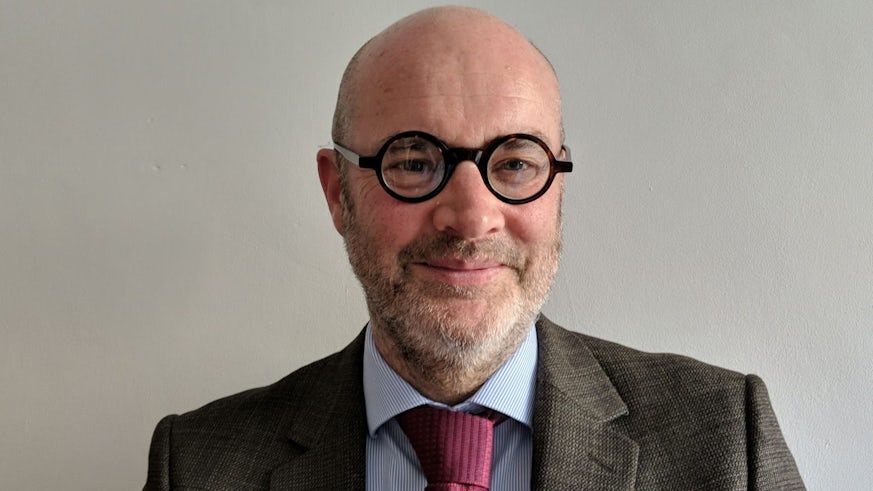Socio-Legal Studies Association elects Cardiff Professor as new Chair
8 July 2022

Professor of Law, John Harrington, has been elected as the new Chair of the Socio-Legal Studies Association (SLSA).
SLSA UK is a registered charity, with over 1,400 members, which works to advance education, research, teaching and knowledge in socio-legal studies.
Professor Harrington has been Professor of Global Health Law at the School of Law and Politics since 2014 and has been Director of the ESRC Doctoral Training Partnership in Wales since 2019. His current research on global health and the nation-state after COVID-19 includes projects in partnership with the African Population and Health Centre, Strathmore Law School, Nairobi, and the University of Edinburgh. It is supported by the AHRC, ESRC, British Academy and the Welsh Government's Sêr Cymru programme. His work combines social and political theory, with analysis of legal doctrine, and empirical fieldwork. His research on constitutionalism and elections in East Africa formed the basis for an Impact Case Study in REF 2021.
Speaking of his appointment, Professor Harrington said, “My success in the SLSA election builds upon last year’s SLSA annual conference which the School of Law and Politics hosted online. It also recognises Cardiff’s key role in the field of socio-legal studies internationally, as home to the front ranking Journal of Law and Society, and the Centre of Law and Society which it supports.”
Professor Harrington was named Chair at this year’s SLSA annual conference which took place at the University of York. He has sat on the SLSA board for the last five years and will serve a four-year term. Building on the achievements of outgoing Chair, Professor Rosie Harding and working with board members from across the UK, his priorities as Chair are 1) sustaining and nurturing the socio-legal community in the aftermath of the pandemic; 2) celebrating the achievements of scholars of all backgrounds, and working with them to make the Association and the academy an inclusive home for their work; 3) renewing and extending connections with peers and sister associations around the world, learning from colleagues in the global south, and sustaining links with continental European partners; 4) representing the Association’s membership and the discipline more widely through well informed and timely interventions in policy processes which determine wider academic environment.
